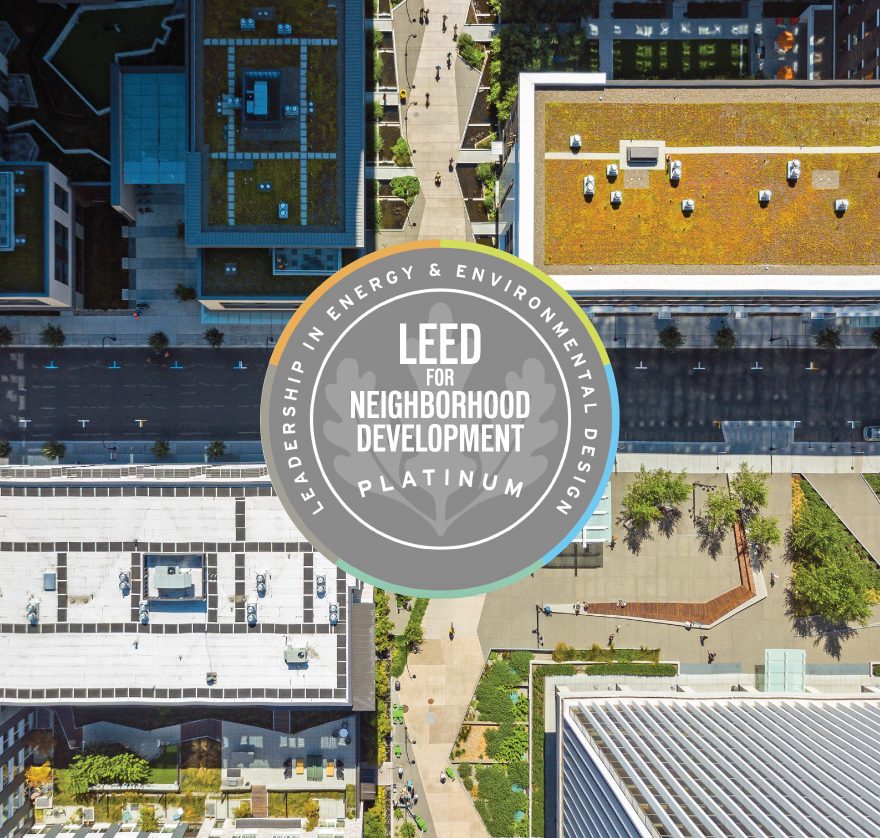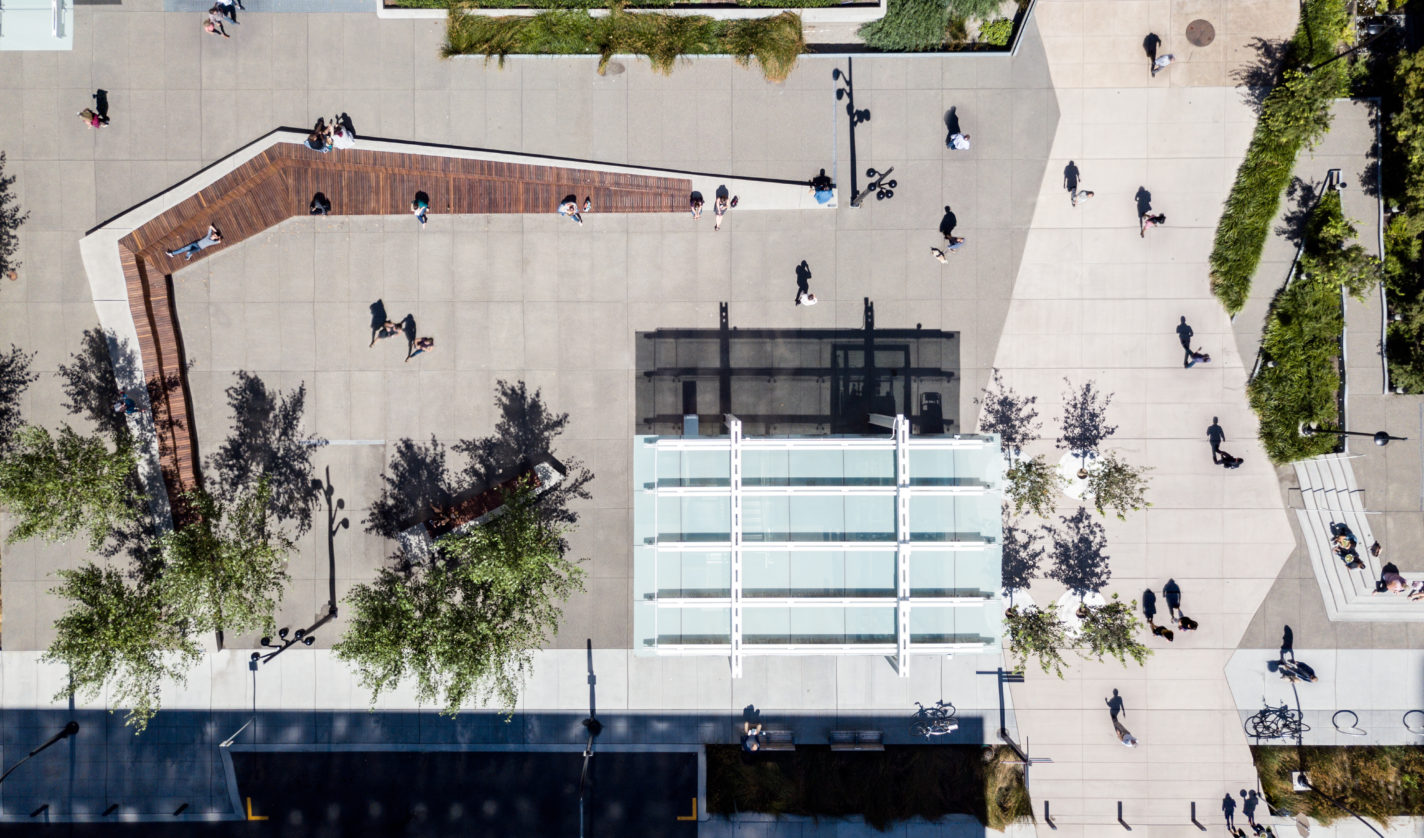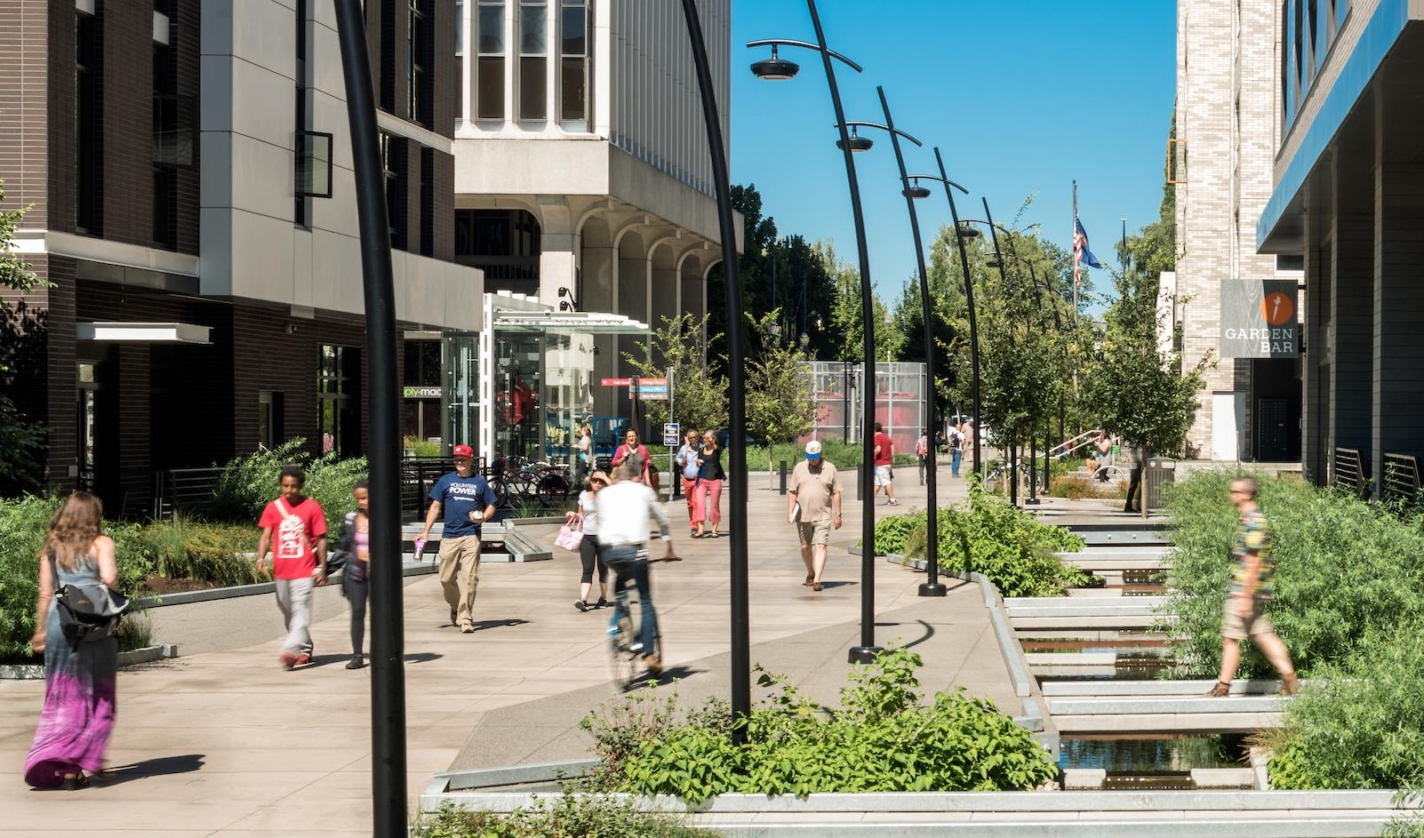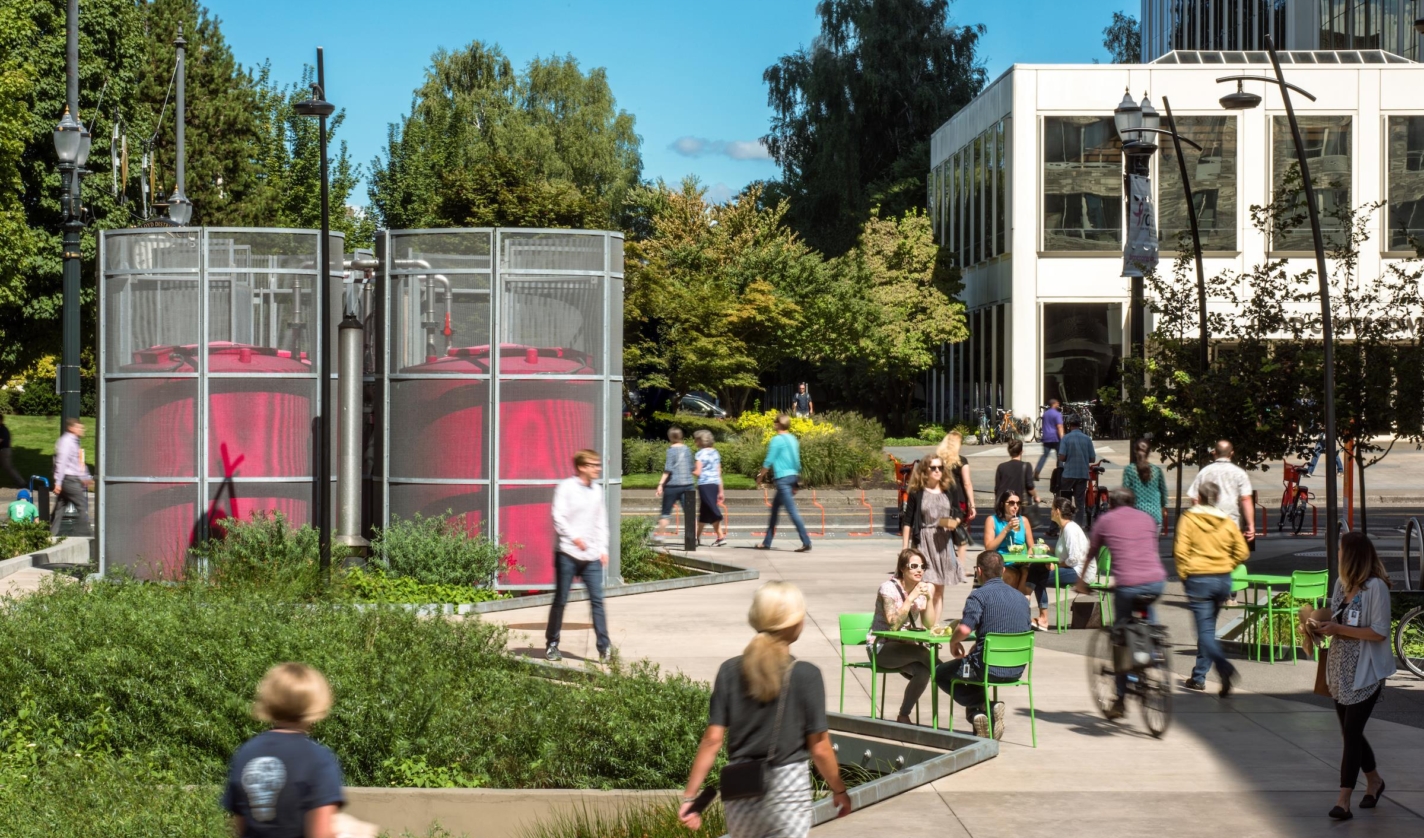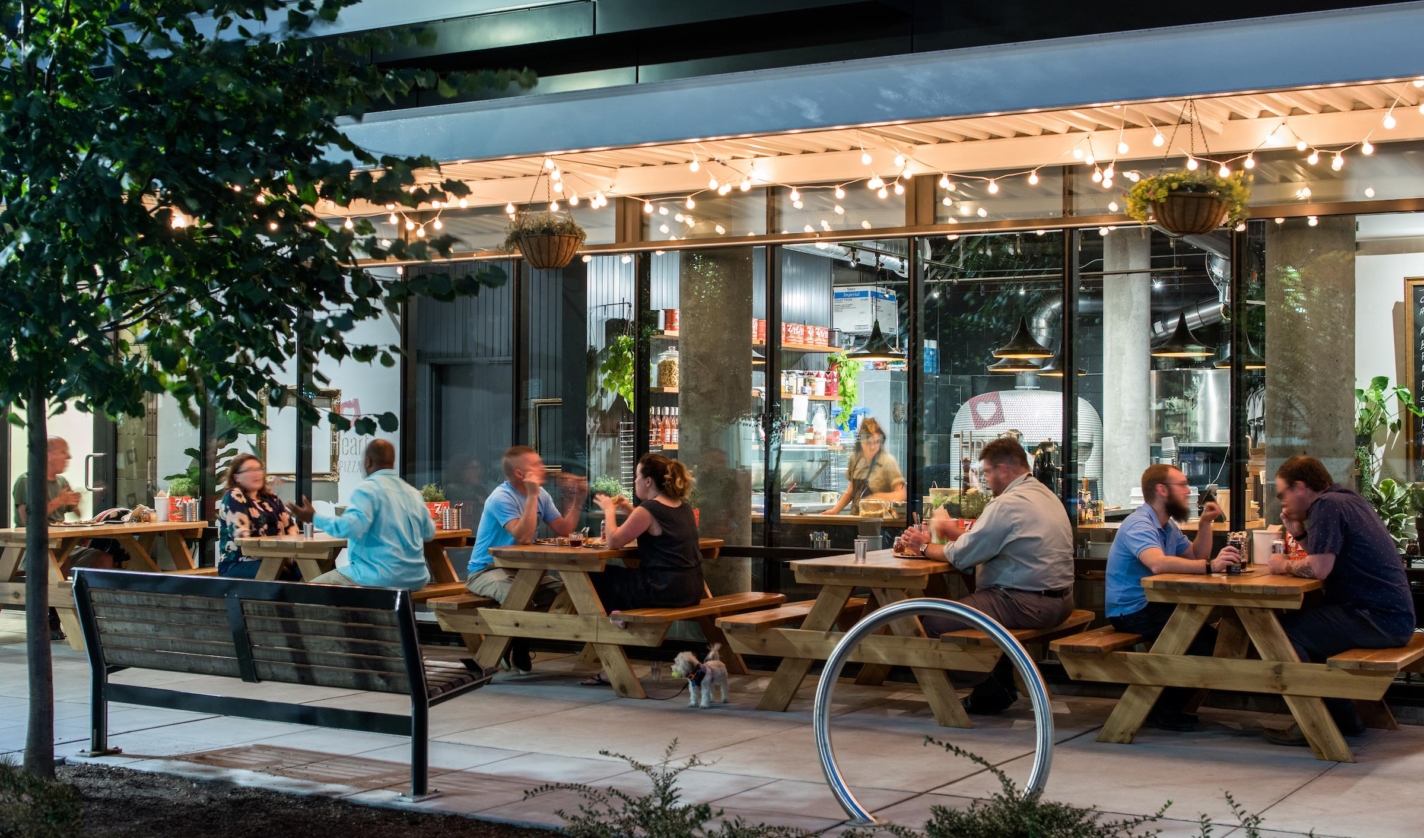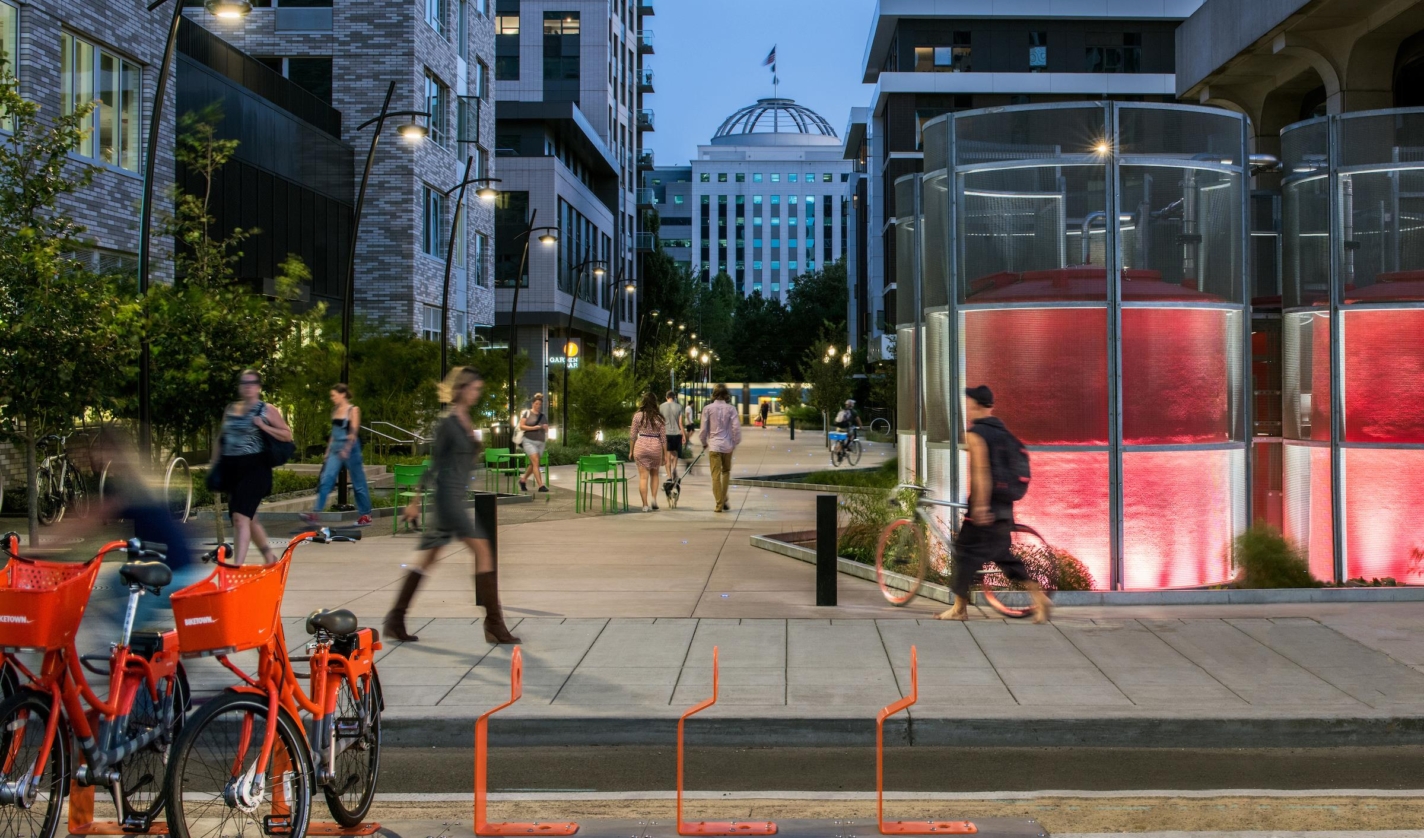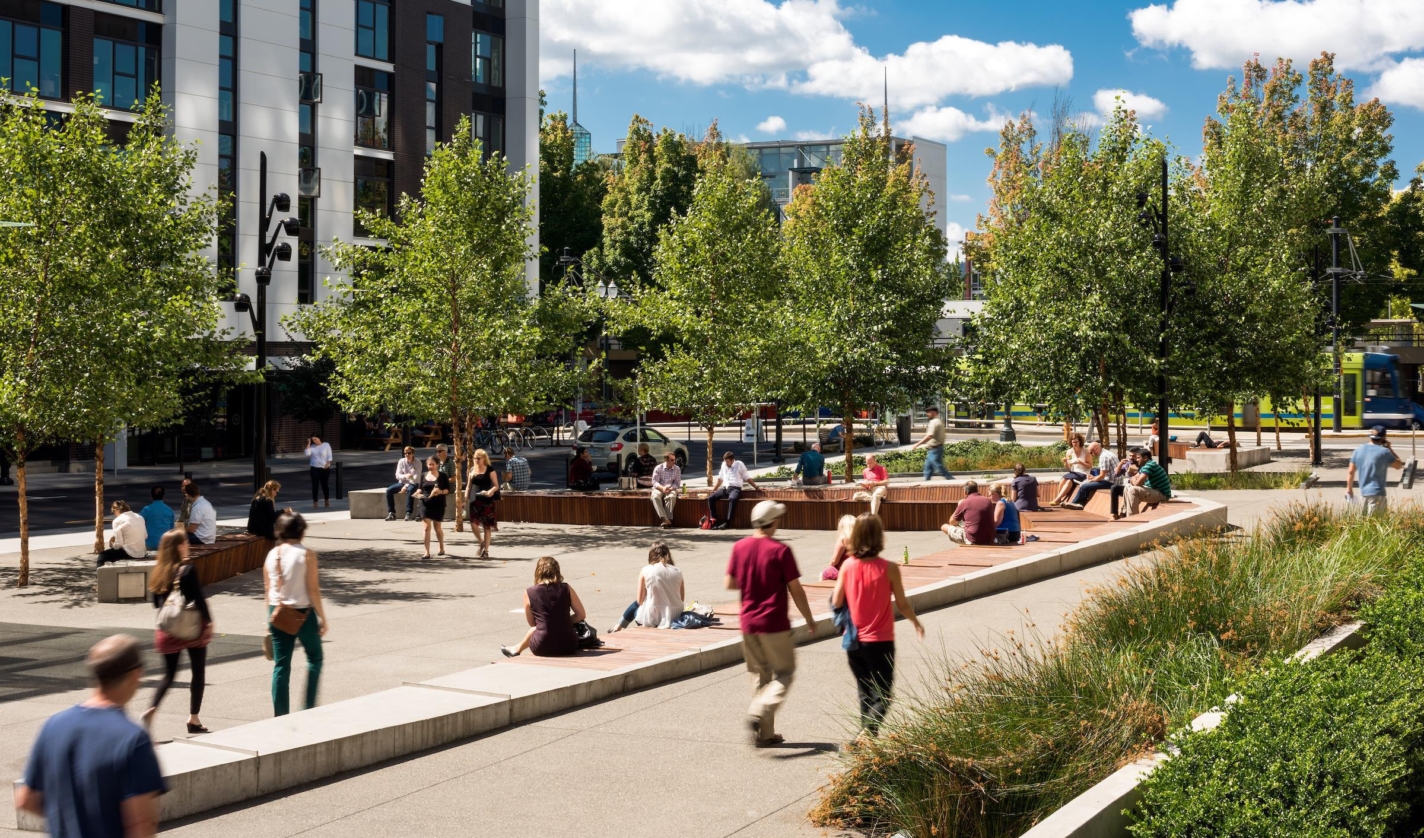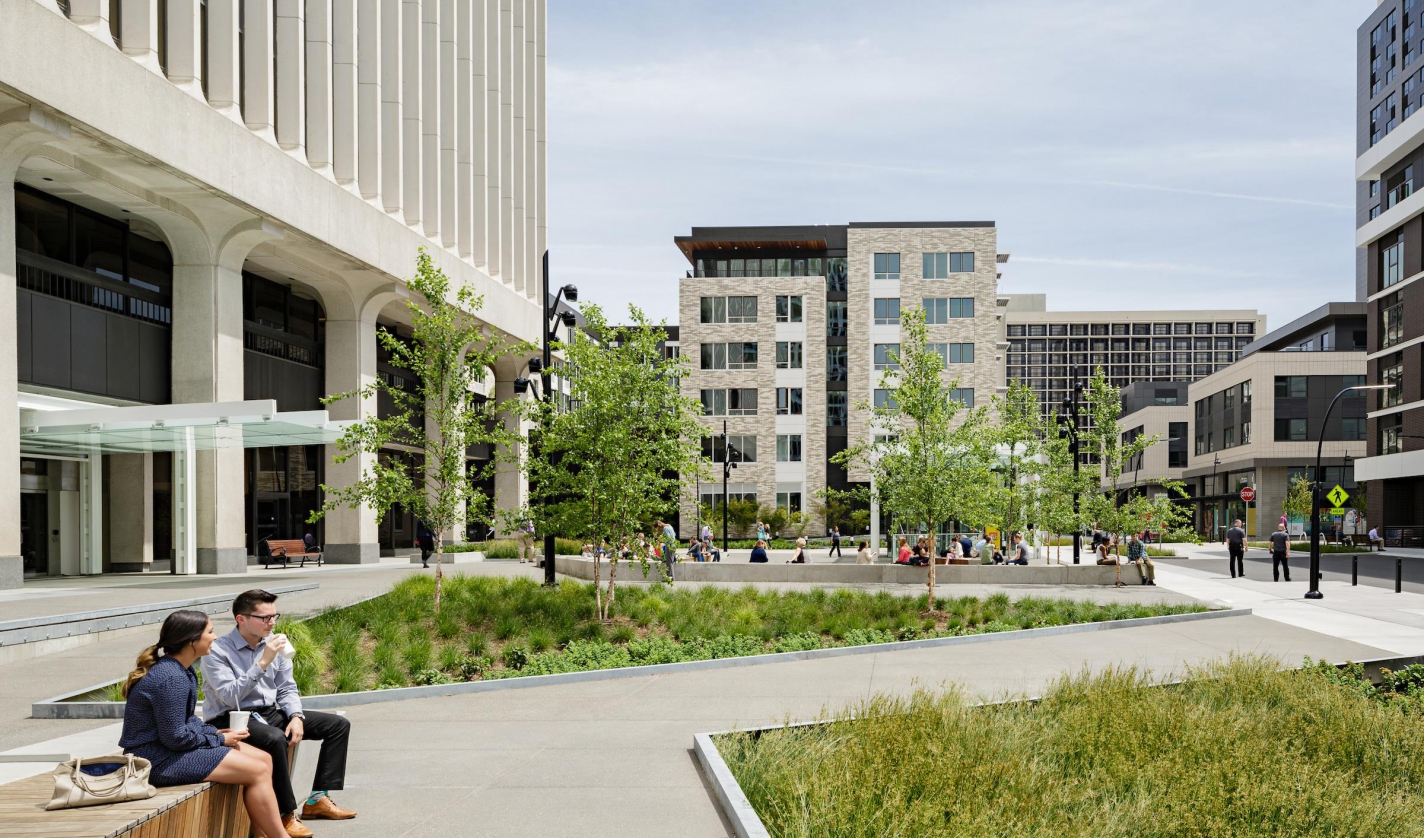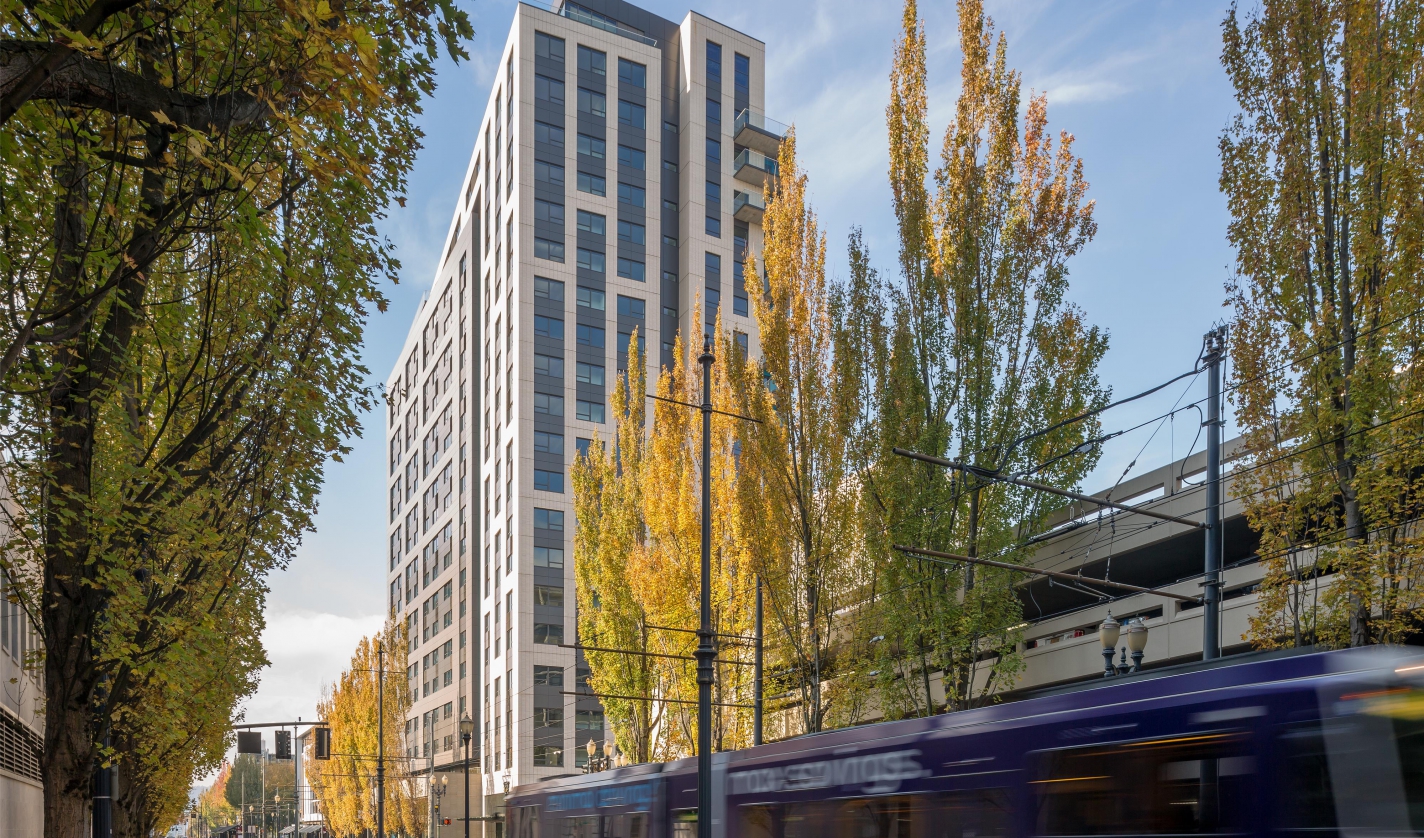Lloyd District certified as one of only 4 ‘EcoDistricts’ worldwide
April 17, 2023
“I think people don’t have a sense of what Lloyd is working on because a lot of sustainability work is invisible,” said the executive director of Lloyd EcoDistrict.
PORTLAND, Ore. — Walking amid the tall office buildings and busy streets of the Lloyd District, environmental sustainability might not be the first thing that comes to mind as a descriptor of the neighborhood.
Home to the Moda Center, Portland’s largest convention space and a large but aging mall, the Lloyd District doesn’t necessarily have the same reputation as some of Portland’s more coveted residential neighborhoods.
But the district is, sneakily, one of the most environmentally friendly neighborhoods in the city, according to Kristin Leiber, executive director of Lloyd EcoDistrict.
“I think people don’t have a sense of what Lloyd is working on because a lot of sustainability work is invisible,” Leiber said.
The neighborhood was recently certified as an “EcoDistrict” — one of just four to receive the coveted certification worldwide.
To get certified, potential EcoDistricts must commit to making equity, resilience and climate protection part of every decision; form a collaborative governance body for planning and implementation; create a long-term roadmap for how projects and programs will be put in place; and track their progress to measure over time.
“It was a really rigorous 3-year process where we developed a long-term strategy in our 2030 road map,” Leiber said. “It involved convening hundreds of people in the district.”
The Lloyd EcoDistrict has several distinct areas of focus; for example, they’ve put an emphasis on placemaking and creating habitat for pollinators. That includes frequent cleanup parties at Peace Memorial Park, just above the Eastbank Esplanade, and community mural painting projects.
On Northeast Multnomah Avenue, bike lanes are separated from the roadway not by a curb, but by planters filled with native foliage to attract pollinators.
The Lloyd EcoDistrict organization has also focused on developing a path to decarbonization, working with building owners to increase efficiency and developing best practices that owners can share with each other.
One way they’ve looked to measure success is through Energy Star scores, which measure a property’s efficiency compared to other buildings. In 2019, the last year for which reliable data was available, the Lloyd District’s median score was 80, compared to the citywide median score of 73, according to report commissioned for the organization.
Building efficiency will be especially important as the Lloyd District continues to grow. Buildings represent the second largest source of greenhouse gases in Oregon after only transportation, and the neighborhood is expected to add an additional 22 million square feet of new commercial, retail and residential space over the next 25 years.
The nonprofit has also held a series of workshops in their third area of focus: resiliency. Residents have learned the basics of first aid, how to respond to toxic wildfire smoke and people experiencing mental health crises.
Joshua Baker, outreach coordinator for the organization, said the workshops help forge another invisible part of resiliency: the relationships neighbors form with each other.
“We believe that the more bonds and the more connections that residents have, the more that they are able to respond to crises,” Baker said.
And there will be plenty of opportunities to forge more connections in the runup to Earth Day. The organization is holding it’s annual fundraiser on Wednesday, a cleanup at Peace Memorial Park on Friday and a host of other events in collaboration with Earth Day Oregon.
A lot of climate strategies tend to focus on statewide, national or international policies. But Leiber said neighborhoods present the perfect scale to get people engaged and to implement programs that produce tangible results.
“It involves a lot of collaboration, which is easier to do in a few blocks rather than citywide,” she said, “but it’s more impactful than, say, a single property owner might have on one building.”
Report by: KGW Channel 8 News




